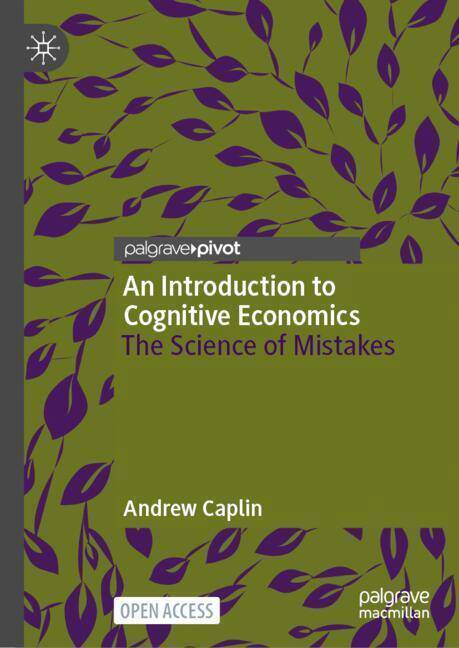
- Retrait gratuit dans votre magasin Club
- 7.000.000 titres dans notre catalogue
- Payer en toute sécurité
- Toujours un magasin près de chez vous
- Retrait gratuit dans votre magasin Club
- 7.000.0000 titres dans notre catalogue
- Payer en toute sécurité
- Toujours un magasin près de chez vous
Description
This book introduces readers to "cognitive economics," a rapidly emerging interdisciplinary science built on economic, psychological, and data scientific foundations. Throughout the book, economist Andrew Caplin provides new approaches to help scholars collaborate and solve problems that can shape economic outcomes and bridge the gap between theoretical knowledge and the real world.
Divided into two parts, the first section brings readers up to speed on economic concepts that underlie decision-making mistakes, such as utility functions, subjective beliefs, and costs of learning. It also explores real-world applications, including improvements in legal decision-making, online privacy protection, and optimizing human-AI collaboration. The book also discusses the future impact of AI on the workforce and emphasizes the need for decision-making skills and financial literacy in navigating this evolving landscape. In the second section of the book, Caplin addresses the barriers to progress within social sciences, advocating for interdisciplinary cooperation and innovative measurement techniques to advance the field.
The book invites readers to contribute to the development of cognitive economics. Whether you are a socially-conscious and hard-working citizen, business leader, scholar, or policymaker, this book will help you understand why cognitive economics matters to you and how you can contribute to its takeoff.
This book is available open access, which means it is freely available online.
Spécifications
Parties prenantes
- Auteur(s) :
- Editeur:
Contenu
- Nombre de pages :
- 158
- Langue:
- Anglais
Caractéristiques
- EAN:
- 9783031730412
- Date de parution :
- 28-12-24
- Format:
- Livre relié
- Format numérique:
- Genaaid
- Dimensions :
- 157 mm x 211 mm
- Poids :
- 344 g

Les avis
Nous publions uniquement les avis qui respectent les conditions requises. Consultez nos conditions pour les avis.






